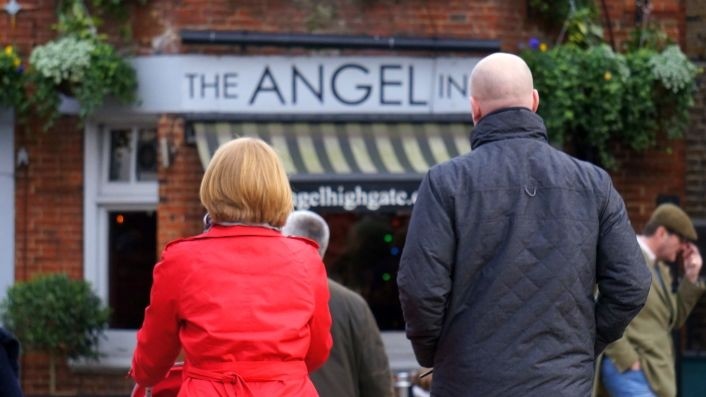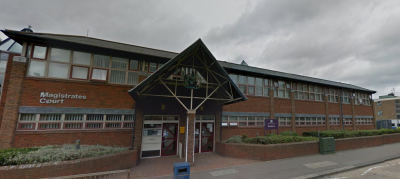Which is best, a tenancy or a lease?

There has been a lot of scaremongering about the plight of tenants and lessees in the pub sector. For many, taking on a tenancy or lease can be a profitable way to run a business or get experience within the pub sector. But whichever type of agreement is chosen, there can be pros and cons for both the tenant and lessee.
Many licensees take on shorter-term leases, usually called tenancies, for a period of between two and five years. It means that they take on the business and have a good level of support from a pub company or brewer. The licensee is likely to be tied for beer products unless they have a free-of-tie lease and the responsibility for maintaining the building remains with the property owning company.
A lease is a long-term agreement for a period often of around 20 to 25 years. The pub is usually tied for beer and other products and has responsibility for the building with a fully repairing and insuring lease. Business support is offered, but generally not as substantial as with a tenancy.
The career path for licensees has traditionally been for a manager to take on a tenancy, move on to a longer lease and eventually buy their own freehold.
Tenancies are recognised as a low-cost entry into the pub sector where new operators can start out.
Association of Licensed Multiple Retailers (ALMR) chief executive Kate Nicholls says: “A pub tenancy can provide aspiring entrepreneurs with a convenient and cost-effective route into the eating and drinking-out sector. Tenants retains a considerable degree of control over the running of their pub, with help and support from their pub company.
“This model also provides people with an opportunity to run a successful and innovative business without the need for massive amounts of start-up capital.”
A great opportunity
This view is supported by British Beer & Pub Association (BBPA) chief executive Brigid Simmonds who believes it provides a great opportunity for those with little capital.
“For an ambitious pub-chef entre-preneur, for example, you can be in charge of your own kitchen at a very young age, and shape the growth of your own business,” she says.
However, she warns that running a pub now requires a vast and growing range of skills. As well as hospitality, catering and marketing skills, pubs are also highly regulated, so anyone taking on the challenge will need a good understanding of the legislation that affects the sector, from licensing, to health and safety, and food hygiene.
Simon Chaplin, head of London pubs at Christie & Co, says the nature of the tenant has changed in the past 20 years. “There was a time when a tenant was set for life – they traded in the hours of lunchtime and evening and played golf. Or that was the impression given.”
He says that this type of agreement means that there is generally a higher level of support especially from the regional brewers who often offer a lower rent. As a tenant, he advises the licensee not to spend too much money within the business, as the premises are still owned by the pubco and it is a shorter tenure than traditional leases.
“The downside of being a tenant is that if you build that business up over three years you can get nothing as a reward, just an increased rent,” warns Chaplin.
“You have to be careful how much you do to be successful. You want to be moderately successful but you don’t want to push it too far.”
He admits it provides a good grounding before potential licensees take on a lease or freehold.
“I hate it when people say I am buying a freehold and have spent £600,000 on it. I say have you pulled a pint before? They say ‘no, I am going to go on a course’. It happens so often and it doesn’t do the pub any good because these are the ones that end up failing and closing, and getting into trouble.”
Choosing the right company
He says that when choosing any premises, whether a tenancy or a longer lease, it is essential to choose the right company.
“You have to pick the right pub and the right company. The pubco behind it is a more important criterion than the pub,” he adds.
Fleurets head of pubs James Davies says that the price of freeholds means many operators will have to look at leaseholds or tenancies.
“You can get a venue and enter for a fraction of the ingoing costs than you would be paying for a freehold,” he explains.
One area that presents a challenge for the licensee is obtaining finance to buy a pub. “It is difficult enough to borrow money but if you walk into a bank and say I want to buy this free-hold pub and I haven’t had much experience, they are going to laugh you out the door,” he says.
“It is more likely that person can either re-mortgage their property or sell something and get into a leasehold or tenancy.”
He says that there has been a level of criticism and much bad press levelled against the pubcos and combined with increased costs that have put some pressures on the sector. “The tie will always get bad press because it is easy to throw stones,” says Davies.
He argues that one positive is that pubcos provide more support to make sure people go into the pub business with their eyes open. “The pubco will want the tenant to have a business plan with a forecast profit and loss account, and a forecast cash flow,” he says.
“You have to prove that you have enough business training and you understand cash flow and can support a certain amount of salary and product.”
The pubcos want their tenants to be successful because there is no benefit to them if the pub fails, he argues.
The challenge of cash flow
Meanwhile, Savills director Dan Mackernan argues that cash flow is the major challenge for licensees. He says that licensees with little capital, that are nervous about Brexit, are considering taking on short-term agreements where there is no liability for repairs.
While those taking a lease may have a level of security with the longer agreement, there is still a major pitfall with reassignments. “Even if you sell the lease, they (the pubco) can come after you further down the line,” he warns. “If you had a 20-year lease and sold it, the pubco can still come back for you.”
Under the terms of many leases, the licensee that has reassigned and sold the lease on can be forced back into the pub if the replacement licensee fails and leaves the business.
Another challenge he argues is that many licensees struggle with the back-of-house administration. “They are good with the customers and serving drinks but quite a lot of tenants are not that clued up financially and with record keeping,” he says.
While property agents have their views on the ups and downs of tenants and leases, licensees can recognise this as well. Former BII Licensee of the Year Phil Davison left his award-winning tenanted pub after 16 years when his pubco tried to up the rent at the Sun in the Wood, Ashmore Green, Berkshire. He left to purchase the freehold of the Fox & Hounds in Peasemore, Berkshire.
“When the recession came, they were looking at the pubs doing well and were trying to get more out of them,” he says. “All rent reviews stipulate fair maintainable trade and we always argued our trade was always beyond that.”
Davison admits that there are pros and cons in running a tenanted outlet. “They are very good avenues into the industry for novices because you have a reasonable network of good support behind you,” he advises.
“We did well and we negotiated a good deal when we went in for the first three years. It is important that the tenant must have a fair agreement going in. So they have time to make a go of it.”
Level of uncertainty
Meanwhile, Ei Publican Partnerships lessee of the Eagle in London’s Battersea Simon Clarke, who is also a pub campaigner, warns that there can be a level of uncertainty with a tenancy because there is no guarantee at renewal.
“You can build a business up and then be out. They can say the tenancy is ending and the rent is doubled and you can either accept that or you can’t,” he argues.
He says that with a lease, whether it is free of tie or tied, there are grounds to have rent determined by a court if the pubco tries to increase the costs. But the pubco can also refuse renewal for a number of reasons such as wanting to redevelop the site or wanting to take it back for management.
While there has been significant scaremongering, there are pros and cons in being both a tenant and lessee that licensees must seriously consider before taking on a property.
- To find out more about pubs for sale, lease and tenancy visit our property site.







